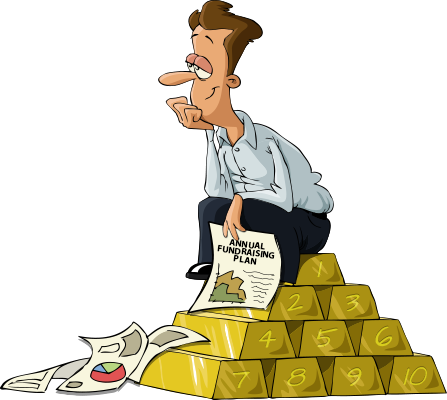Donor cultivation is a critical part of achieving a charity’s mission.
Build a good relationship with donors, and you set the stage for a lifetime of giving. Ignore the importance of donor relations, however, and your donors may become loyal givers elsewhere.
Donor relations isn’t just for corporate sponsors and foundations, either. In fact, according to Giving USA, 81% of Nonprofit revenue comes from living individuals and bequests, which means a good donor-relation plan will always focus on the individual givers.
Consider these 10 golden rules to build donor-relation momentum and help your Nonprofit succeed long-term:
1. Commit to donor cultivation.

If supporters have a stellar experience and feel valued, not only are they more likely to donate in the future, but they might suggest your organization to friends with similar interests who also have charitable dollars to give.
 2. Communicate regularly.
2. Communicate regularly.
Contact past and potential donors regularly. Stewardship updates, event details and mission success stories are all wonderful reasons for outreach.
For major donors, strive to meet with them in person for coffee or lunch, or via the telephone for a personal conversation, at least quarterly. Being at a higher level of giving merits the extra effort.
Don’t let donors forget that without them, none of the good your organization does would be possible.
3. Vary communication channels.
Variety is the spice of life, and what works for one donor may not work for another. That’s why it’s important to vary how you communicate with donors.
Perhaps send out a weekly e-newsletter, use direct mail once a month and strive to make phone calls every few months to major donors. Consider maintaining a blog and being active on popular social media platforms to connect with a wider audience.
{{cta(’55cbcb9e-f865-47b8-bc59-49f07a4b0037′,’justifycenter’)}}
4. Be genuinely grateful.
Showing gratitude to those who give their hard-earned money to your charity is a top priority. Always be prompt with thank you’s, whether the donation is 25¢ or $25,000. Send emails within 24 hours and personalize them with the donor’s name. Follow up with a phone call.
Remember, donations can grow over time. It’s not uncommon for first-time donors to start with a smaller amount to test the water, and then base future donations on that initial experience.
5. Allocate adequate resources.
A quality donor-relations program requires the right resources to do the job well. You need properly trained staff members, technology to streamline the outreach process, and a budget that will ensure the program can run year-round. Make sure the board and planning committees know what you need and why it’s so central to the mission.
6. Keep good records.
When was the last time you reached out to a particular donor? What method did you use? What topic was addressed?
Keep quality records of all conversations and outreach strategies so this type of information is always on hand and easy to access. If this sounds complicated, consider donor-management software options that help keep information organized.
7. Be open to feedback.
Donor relations is not a one-way street. Donors want to feel valued and know that their feedback matters.
Spend less time talking and more time listening.
Have a phone conversation or meet-up and ask supporters what they like, and what they would change. Get their thoughts on a recent project. Learn what matters to them and use this information to your advantage to build deeper relationships.
8. Know when to ask…and when to wait.
The majority of the conversations you have with donors should not center around money.
The reason: If you make every conversation about a donation, they won’t feel appreciated. No one wants to feel like a bank.
Get to know donors personally. Inform them of exciting organizational developments and understand their reasons for caring about your Nonprofit. When it comes time for the ask, it can help to be specific about a donation amount and, of course, help them understand how their money makes a difference.
9. Make it a team effort.
Cultivation and donor appreciation should not be the responsibility of one person alone. To get the job done right is a goal the entire staff should adopt.
Start by explaining to everyone why donor relations is central to the mission and how it has a direct impact on the well-being of the Nonprofit. Then let each staff member know how they can help and what is expected.
10. Stay positive.
Donor relations can be a very enjoyable process, but there are times when it can be a challenge.
Even when you’re making your way through long phone lists and leaving what seems like hundreds of messages, maintaining a pleasant demeanor can make all the difference. Remember you’re trying to connect to a real person, not just the next fundraising tally mark.
{{cta(‘0d771a74-45f8-4fa7-800e-0e6d53ecee96’)}}


 2. Communicate regularly.
2. Communicate regularly.